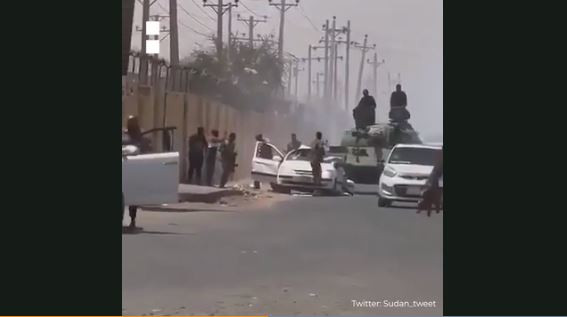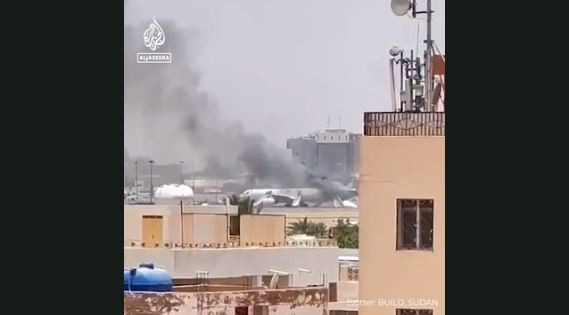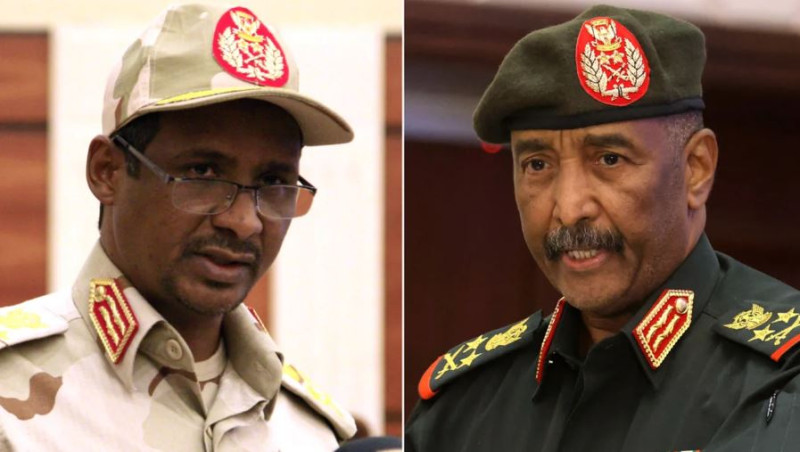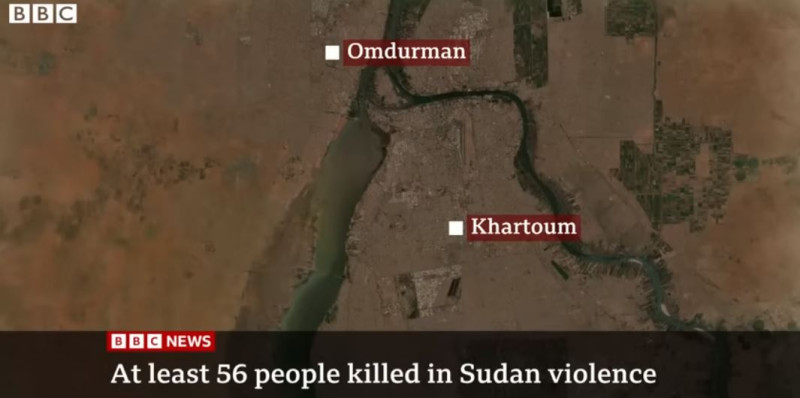Forces loyal to two rival generals are vying for control, and as is often the case civilians have suffered the most, with dozens killed and hundreds injured
Fierce fighting across Sudan has dashed hopes for a peaceful transition to civilian rule.
Forces loyal to two rival generals are vying for control, and as is often the case civilians have suffered the most, with dozens killed and hundreds injured.
The struggle for power is at the heart of the battle
At the center of the conflict are two men: Sudan’s military leader Abdel Fattah al-Burhan and the commander of the paramilitary Rapid Support Force (RSF), Mohamed Hamdan Dagalo.
Until recently they were allies. The two worked together to overthrow ousted Sudanese President Omar al-Bashir in 2019 and played a key role in the 2021 military coup.
However, tensions arose during negotiations to integrate the RSF into the country’s military as part of plans to restore civilian rule.
The key question: who would be subordinate to whom in the new hierarchy.
These hostilities are the culmination of what both sides see as an existential struggle for dominance.
Sudan is no stranger to turmoil
It is hard to understate how “seismic” Bashir’s overthrow was. He had led the country for almost three decades when popular protests, which began over rising bread prices, ousted him from power.
During his rule, South Sudan seceded from the north, and the International Criminal Court issued an arrest warrant for alleged war crimes against Bashir in Darfur, a separatist western region.
After Bashir’s overthrow, Sudan was ruled by an uneasy alliance between military and political groups.
All this ended in 2021, when the power-sharing government was dismantled by the armed forces.
RSF has a controversial past
The Rapid Support Forces are the prominent paramilitary group in Sudan whose leader, Dagalo, has enjoyed a rapid rise to power.
During the conflict in Sudan’s Darfur in the early 2000s, he was the leader of Sudan’s notorious Janjaweed forces, which were involved in human rights abuses and atrocities.
An international outcry saw Bashir formalize the group into a paramilitary force known as the Border Intelligence Units.
In 2007, its troops became part of the country’s intelligence services and, in 2013, Bashir created the RSF, a paramilitary group under his supervision and led by Dagalo.
Dagalo turned against Bashir in 2019, but not before his forces opened fire on an anti-Bashir, pro-democracy sit-in in Khartoum, killing at least 118 people.
He was later appointed deputy to the transitional Sovereign Council that governed Sudan in cooperation with the political leadership.
The two opponents mirror each other
Burhan is effectively the leader of Sudan. At the time of Bashir’s overthrow, Burhan was the army’s inspector general.
His career has almost paralleled that of Dagalo.
He also rose to prominence in the 2000s for his role in the dark days of the Darfur conflict, where the two men are believed to have first come into contact.
Al-Burhan and Hemetdi both consolidated their rise to power by currying favor with the Gulf powers.
They commanded separate battalions of Sudanese forces, sent to serve with the Saudi-led coalition forces in Yemen.
Now they are locked in a power struggle.
Sudan faces an uncertain future
When the fighting will end is unclear. Both sides claim control of key locations and fighting has been reported across the country, in places far from the capital Khartoum.
While various official and unofficial estimates put the Sudanese armed forces at around 210-220,000, the RSF is believed to number around 70,000 but is better trained and better equipped.
International powers have expressed concern. In addition to concerns about civilians, there are likely other motivations – Sudan is rich in resources and strategically located.
CNN previously reported how Russia colluded with Sudan’s military leaders to smuggle gold out of Sudan.
Dagalo’s forces were a key recipient of Russian training and weapons, and Sudanese military leader Burhan was also believed to be backed by Russia, before international pressure forced him to publicly disavow the presence of the Russian Wagner mercenary group in Sudan.
Sudan’s neighbors Egypt and South Sudan have offered to mediate, but in the meantime the only certainty is more misery for the Sudanese people.
Source :Skai
With a wealth of experience honed over 4+ years in journalism, I bring a seasoned voice to the world of news. Currently, I work as a freelance writer and editor, always seeking new opportunities to tell compelling stories in the field of world news.














